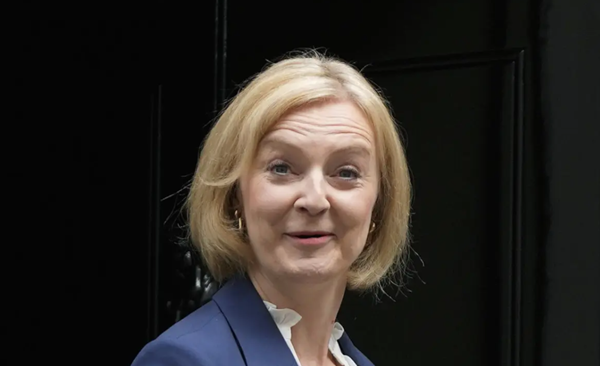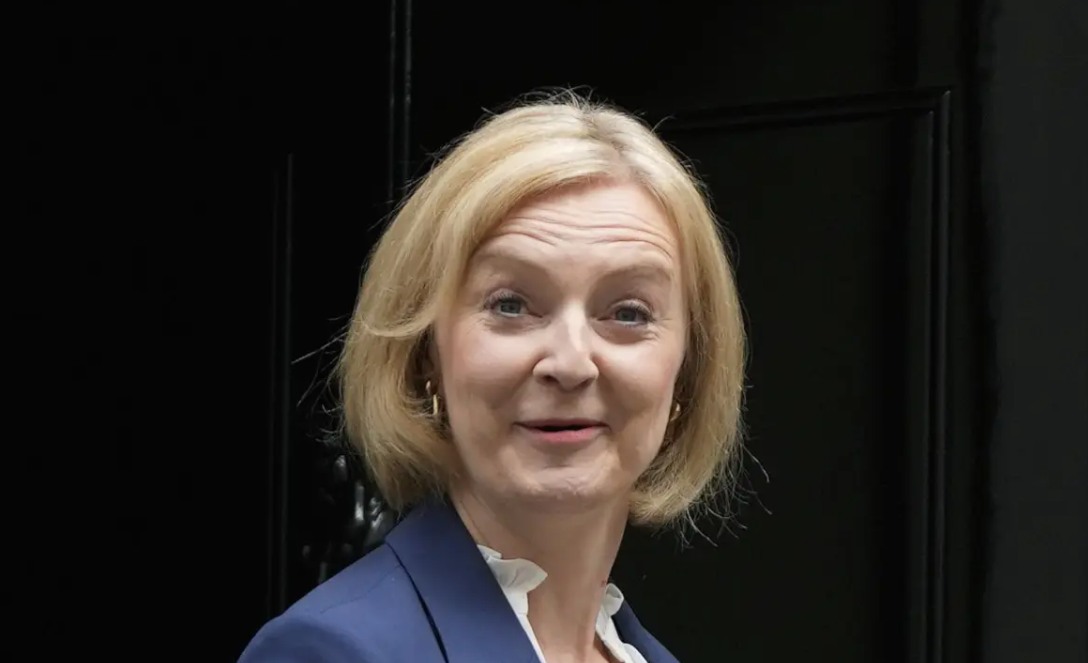
Truss skirted the topic twice when asked if she wanted to apologize to people facing higher mortgage rates at a speech and Q&A, before the anniversary of her government’s so-called mini-budget.
-

Former British Prime Minister Liz Truss leaving Downing Street in London on September 7, 2022. (AP)
Liz Truss has rejected the idea that she ruined the UK economy when she was prime minister, and sought to blame “groupthink” from the Bank of England, the media, and the civil service.
On Saturday, in contrast, in her first televised interview since being ousted from office after a short-lived 49-day tenure, she expressed regrets during a live question-and-answer session on GB News.
Truss acknowledged her errors and revealed her lack of readiness for the challenges she encountered, as well as the criticism and backlash she faced due to her failing policies.
Truss skirted the topic twice when asked if she wanted to apologize to people facing higher mortgage rates at a speech and Q&A soon before the anniversary of her government’s so-called mini-budget, which frightened markets with its drive for seemingly unfunded £45 billion in tax cuts.
Her attempt to stimulate economic growth by introducing a package of tax cuts without sufficient funding had a detrimental effect on British financial markets. This, in turn, led to increased borrowing costs for millions of British citizens who were already struggling with soaring prices, as she laid the blame on what she called the prevailing “groupthink” within the “economic establishment” for her disastrous term.
‘Groupthink’
Instead, she suggested that the main faults were with economic institutions like the Bank of England, which had allowed artificially low-interest rates to persist for far too long, and a broader “sense of groupthink and consensus.”
Truss stated, following her well-publicized speech, that she planned to reinvigorate her economic ideas within the Conservative Party, announcing she would attend the Tory conference next month and “say more.”
Some Conservative MPs criticized her possible return, with Conor Burns stating Truss’ biggest contribution to the party would be “sustained silence,” and Damian Green adding he was “glad” Truss was not accountable for the year’s budget.
Bank of England ‘pumping system full of money’
When asked if her economic record in her first 49 days in government had harmed the Conservative brand, Truss retorted that she wanted to “challenge” the notion that she crashed the economy, telling the Institute for Government event that since she departed from office, both mortgage rates and gilt rates have spiked.
“I just think you are repeating a line to take from Labour,” arguing that the Bank of England was “pumping the system full of money,” and enabling the excess government spending.
The former PM also expressed that she thought it a mistake not to tell people “years and years ago” that interest rates were “artificially low.”
When questioned why she did not have the Office for Budget Responsibility (OBR) review the mini-budget before it was released, Truss stated that the OBR was not requested to review considerably larger expenditure commitments during Covid and accused the OBR of releasing estimates indicating a £70 billion deficit in the mini-budget in order to damage her.
“So I think it’s interesting that media organizations choose to target the mini-budget for not having an OBR forecast, but don’t mention this when it’s about spending,” she said.
A matter of ‘warnings and back-covering’
When asked about examples of public servants attempting to stymie progress, Truss claimed it was more a matter of “warnings and back-covering.”
She noted how when the subject revolved around climate change, officials were enthusiastic, but when it came to matters like migration, such as the Rwanda deal, there was “less enthusiasm.”
While asserting that political influences were unavoidable in financial markets, Truss admitted that she underestimated their anticipated reaction, “If we’d known the fragility of the markets, we would have done things differently,” attributing much of her way of operating around her character citing it was “the way I am.”
When asked if she agreed with many Tory MPs that her administration was inherently incapable, Truss retorted by saying she wanted to avoid blaming others, recalling that “lots of people made lots of mistakes.”






